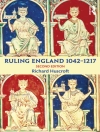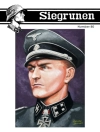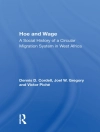Since the Ukrainian crisis in 2014, Russia’s support to the European far right—and to a variety of populist leaders more globally—has become a cornerstone of the West’s perception of Moscow as a “spoiler” on the international scene. The fact that Russia’s most fervent supporters are now to be found on the right of the ideological spectrum should not be a surprise. The European far right has always had Russophile tendencies, but these were obscured during the Cold War, when rightist politics were most of all anti-Communist. <i>Entangled Far Rights</i> traces the “intellectual romance” that existed between European far right groups and their Russian-Soviet counterparts during the twentieth century and accounts for their recent re-emergence.
Sobre el autor
<b></b><b>Marlene Laruelle</b>, Ph.D., is an Associate Director and Research Professor at the Institute for European, Russian and Eurasian Studies (IERES), Elliott School of International Affairs at the George Washington University. She is also a Co-Director of the Program on New Approaches to Research and Security in Eurasia (PONARS Eurasia) and Director of George Washington University’s Central Asia Program.












